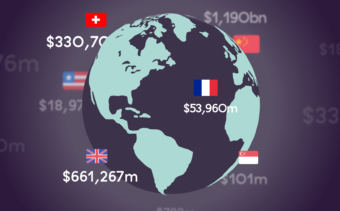
The US Foreign Corrupt Practices Act (FCPA) is a federal law intended to prevent US citizens from bribing the government officials of foreign countries. The FCPA was enacted by Congress in 1977 in response to revelations by the Securities and […]

The US Foreign Corrupt Practices Act (FCPA) is a federal law intended to prevent US citizens from bribing the government officials of foreign countries. The FCPA was enacted by Congress in 1977 in response to revelations by the Securities and […]

The Bureau of Industry and Security (BIS) list, also known as the ‘BIS Entity List’, sets out the specific foreign persons (including businesses, research institutions, government organizations, and other legal entities) that are subject to US government licensing and sanctions […]

High-Intensity Drug Trafficking Areas (HIDTA) are designations made by the United States government for areas of the country that experience a particularly high volume of drug trafficking. HIDTA programs are intended to help law enforcement agencies in the fight against […]

The Ministry of Commerce (MOFCOM China) is the primary government agency responsible for developing and implementing foreign trade policy, import and export controls, and sanctions regulations in the People’s Republic of China. MOFCOM’s history dates back to the foundation of […]

In a constantly evolving financial landscape, challenger banks have become increasingly mainstream, with one study suggesting 14 percent of UK adults hold an account with one of the four largest institutions. Challenger banks disrupt the space occupied by legacy banks […]

OFAC sanctions fines and how to avoid them International sanctions are a vital part of the global fight against money laundering and the financing of terrorism. In the United States, economic sanctions are implemented by the Treasury’s Office of Foreign […]

In a data-driven financial landscape, cybercrime has become a significant concern for regulators and institutions alike, with criminals exploiting computer systems and online financial services to perpetrate money laundering, fraud, and other crimes. The cost of cybercrime money laundering is […]

The payments industry has been transformed by innovative technologies facilitating faster, more flexible payment products and better experiences for customers. However, That innovation trend has been accompanied by increased risk for payment firms, as criminals seek to misuse payment service […]

Sanctions – restrictions and penalties imposed in response to violations of international law and threats to global security – are a key tool of US foreign policy. A wide range of sanctions allows the US to achieve policy objectives by exerting […]

In a digital financial landscape firms must be aware of the relevance of cyber crime penalties and the increasing importance of cyber sanctions compliance. Cyber-attacks are not just used by individual criminals to perpetrate financial crimes and may also be […]

Understanding the Monetary Authority of Singapore Omnibus Act: What You Need To Know On 21st July 2020, the Monetary Authority of Singapore (MAS) launched its Consultation Paper on the New Omnibus Act for the Financial Sector, setting out proposals for […]

Cryptocurrencies (also known as virtual assets) are introducing new possibilities for users across the financial landscape but are also disrupting the way regulators and financial institutions deal with criminal threats such as money laundering and the financing of terrorism. Discover […]